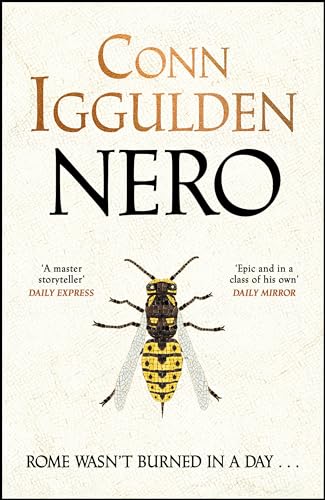Nero
Rome, AD 37, and Gnaeus Domitius Ahenobarbus, in a furious temper, tacks horses for his chariot and argues with his pregnant wife. He storms off to certain death, leaving wife Agrippina to face her own mortality as she labours to birth their son. So begins a narrative that shifts from character to character, as they are picked off by the bloody brutality of Roman life. The people seem real. They gamble, sweat, apply makeup, and play games with their children. Gnaeus, a prize-winning athlete, is clumsy in the house, his wife alerted to his homecomings when she hears him crashing about. Such homely details transform historic names into people we can believe in.
But Roman life is gruesome, and this is not a book for the squeamish. Death is as vivid as life. It’s not only battle; women get their share of peril in buttock-clenching childbirth scenes. It’s not all blood and gore, though. The portrayal of the man who would become Emperor Caligula – famed for sadistic tyranny – is a masterclass in subtle writing.
The narrative shifts from person to person, plunging into multiple thoughts, both illuminating motives, and cleverly depicting other players. Scenes alive with personality sweep through the rules of three emperors. The narrative kept me engaged as I waited for Nero and his famous fire – implied on the cover legend: “NERO: Rome wasn’t burned in a day…” So, I don’t want to spoil the end, but I felt the book was mis-titled. However, this is a quibble. This is excellent historical fiction. It brought the past to life, left me keen to read the sequel, and interested in the author’s note on facts. Recommended, provided you can stomach Rome’s bloodiness.










